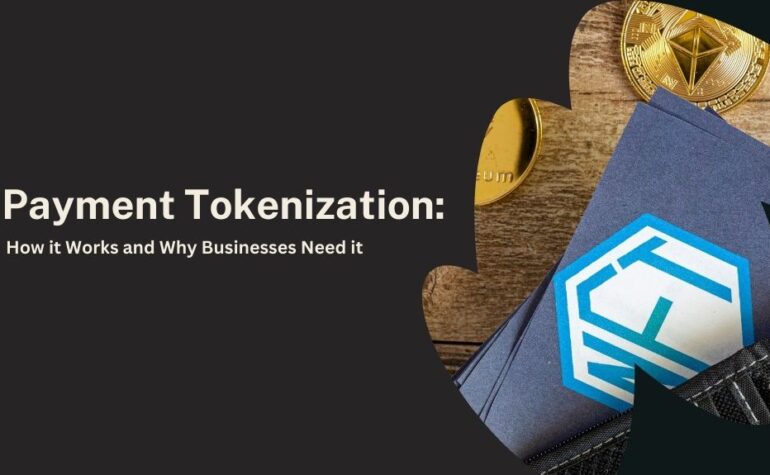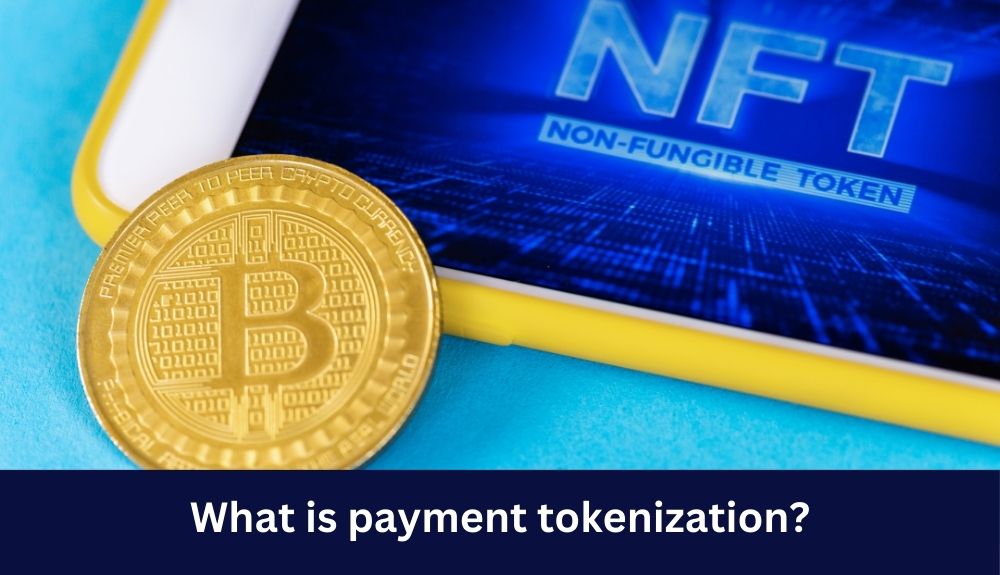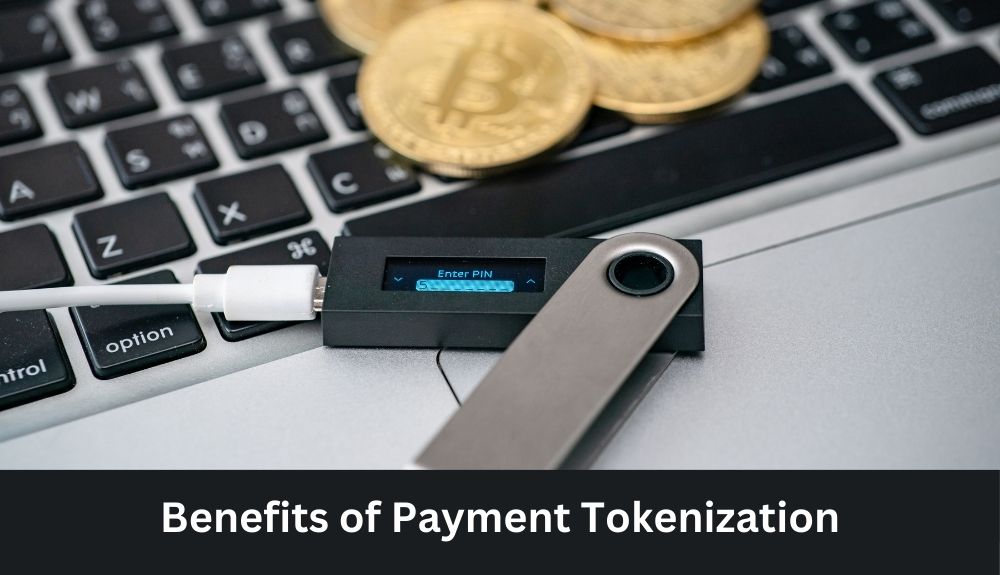Best Credit Card Processing Solutions Tailored for Every Industry

By merchantservices February 29, 2024
Are you worried about the security of your customers’ payment information online? In today’s digital age, where cyber threats loom large, safeguarding sensitive data is paramount. This is where payment tokenization steps in as a powerful solution that not only enhances security but also instills trust in your business transactions. Imagine a scenario where every time a customer makes a purchase, their credit card details are replaced with a unique token – a randomized data string that holds no value to cybercriminals. That’s the magic of tokenization, offering a shield against data breaches and payment fraud. Curious to dive deeper into the world of payment tokenization and unlock its potential for your business?
In this blog, we’ll unravel the intricacies of payment tokenization, exploring how it works and why businesses are increasingly turning to this technology to fortify their payment processes. Here’s a sneak peek at what we’ll cover:
– Demystifying the tokenization process: How sensitive data is transformed into secure tokens
– The significance of PCI DSS compliance in maintaining payment security standards
– Setting the stage for better understanding the difference between tokenization and encryption
Stay tuned as we delve into the realm of payment security and discover how tokenization can be a game-changer for your business. Get ready to bolster your defenses and elevate your customer experience with this cutting-edge payment technology.
Payment tokenization 101: What it is and how it benefits businesses
Payment tokenization is a security measure that replaces sensitive payment data, such as credit card numbers or bank account details, with unique tokens. These tokens are randomly generated and have no inherent value, making them useless to hackers and fraudsters. This technology is revolutionizing payment security and providing businesses with an extra layer of protection against data breaches and fraudulent activities.
By implementing payment tokenization, businesses can enjoy several benefits. Firstly, it significantly reduces the risk of sensitive data being compromised in the event of a data breach. Since tokens are meaningless outside the payment ecosystem, even if intercepted, they cannot be used to access sensitive customer information.
Secondly, payment tokenization simplifies compliance with the Payment Card Industry Data Security Standard (PCI DSS). By using tokens instead of storing actual cardholder data, businesses can reduce the scope of their PCI DSS assessments, potentially saving time and resources.
Furthermore, payment tokenization enhances customer trust and confidence. Customers are increasingly concerned about the security of their payment information, and businesses that employ tokenization demonstrate a commitment to safeguarding their data. This can lead to increased customer loyalty and repeat business.
In summary, payment tokenization provides businesses with robust security measures, reduces compliance burdens, and boosts customer trust. By replacing sensitive data with unique tokens, businesses can protect their customers’ payment information while maintaining a smooth and secure payment experience.
What is payment tokenization?

Payment tokenization is a crucial technique in the realm of payment security. It involves substituting sensitive data, such as credit card numbers or bank account details, with unique tokens. These tokens are randomly generated and are used in place of the actual data during payment transactions.
The primary goal of payment tokenization is to protect sensitive customer information and mitigate the risk of data breaches and fraudulent activities. By replacing the original data with tokens, the sensitive information remains secure, even if it is intercepted or compromised.
Tokens are meaningless and cannot be mathematically reversed to reveal the original data. They are generated using tokenization systems, which securely store and associate each token with the corresponding sensitive data in a secure token vault.
During a payment transaction, the token is transmitted between the merchant, payment processor, and acquiring bank, ensuring that the actual sensitive data is not exposed. The tokenization process adds an additional layer of security, reducing the risk of unauthorized access to sensitive customer data.
It is important to note that payment tokenization is different from encryption. While encryption converts data into a coded form, tokenization replaces the data with a unique identifier. This distinction ensures that even if a data breach occurs, the stolen tokens cannot be used to retrieve the original sensitive information.
Payment tokenization is widely adopted by various businesses, especially e-commerce retailers, subscription-based services, brick-and-mortar retailers, and platforms/marketplaces. Implementing tokenization allows these businesses to safeguard customer payment information, enhance data protection, and build trust among their customers.
In summary, payment tokenization is a powerful security measure that replaces sensitive payment data with unique tokens. This technique safeguards sensitive customer information, mitigates the risk of data breaches, and ensures secure payment transactions.
How does tokenization work?
Tokenization is a highly effective method for securing sensitive payment data. It involves replacing the original payment information with a unique token, eliminating the need to store actual cardholder data. Here’s a breakdown of how tokenization works:
Token generation:
1. When a customer provides their payment information, such as a credit card number, it is securely transmitted to the payment processor or a tokenization service.
2. The processor generates a token, which is a randomized alphanumeric string unique to that specific payment card.
Storage and retrieval:
1. The original payment data is encrypted and stored in a secure token vault or database, usually maintained by a payment processor or tokenization service provider.
2. The token, along with any non-sensitive transaction details, is then returned to the merchant’s system for storage and reference.
Transaction processing:
1. When a customer initiates a payment, they provide the token instead of their original payment details.
2. The merchant’s system forwards the tokenized payment information to the payment processor.
3. The processor decrypts the token to retrieve the original payment data, allowing the transaction to be processed through the payment network.
By employing this tokenization process, businesses can enjoy several benefits. Firstly, it greatly enhances data security by ensuring that sensitive customer information is never compromised in the event of a data breach. Since tokens have no intrinsic value, hackers cannot use them to gain access to actual payment data.
Additionally, tokenization reduces the scope of PCI DSS (Payment Card Industry Data Security Standard) compliance, as sensitive data no longer resides within the merchant’s environment. This streamlines compliance efforts and minimizes the associated costs and risks.
Moreover, implementing tokenization instills customer confidence and trust. Customers feel more comfortable knowing that their sensitive payment information is securely tokenized, reducing the risk of credit card fraud.
In summary, tokenization replaces sensitive payment data with unique tokens, improving data security, simplifying PCI DSS compliance, and enhancing customer trust. This robust method offers businesses a reliable solution to safeguarding payment transactions effectively.
Which types of businesses need to use tokenization for payments?
Tokenization is becoming increasingly essential for businesses across various industries, providing an extra layer of security to payment transactions. Here are some types of businesses that greatly benefit from implementing tokenization:
1. E-commerce retailers:
Online businesses that process payments through their websites must prioritize data security. By utilizing tokenization, e-commerce retailers can ensure that sensitive credit card information is replaced with unique tokens. This significantly reduces the risk of data breaches and protects customer payment details.
2. Subscription-based businesses:
Business models that rely on recurring payments, such as subscription-based services, need to prioritize the security of sensitive customer data. Tokenization allows these businesses to securely store customer payment information while eliminating the need to handle and store actual credit card details. This enhances data protection and mitigates the risk of payment fraud.
3. Brick-and-mortar retailers:
Traditional retailers that accept in-person credit card transactions can also benefit from tokenization. By tokenizing customers’ sensitive data, such as credit card numbers and personal information, brick-and-mortar retailers can improve data security and reduce the risk of breaches, ensuring a safe payment experience for customers.
4. Platform marketplaces:
Platforms and marketplaces that facilitate transactions between multiple parties, such as online marketplaces or booking platforms, can leverage tokenization to ensure secure payment processing. Tokenization safeguards sensitive payment information and enables a seamless and secure flow of transactions between buyers and sellers on the platform.
Tokenization is a versatile solution that can be implemented by businesses of various sizes and sectors. Its ability to protect sensitive payment data makes it an invaluable tool in combating payment fraud and ensuring the security and trust of both businesses and customers.
Remember, tokenization can be tailored to suit the specific needs of different business models and offers enhanced security for a wide variety of use cases.
Benefits of Payment Tokenization

Payment tokenization offers numerous benefits to businesses in terms of enhancing payment security, reducing compliance scope, and improving customer trust. Here are the key advantages of implementing tokenization for payment transactions:
Enhanced Data Protection
Tokenization replaces sensitive payment data, such as credit card numbers and bank account details, with unique tokens. These tokens have no value outside the context of the specific transaction, making them useless for potential attackers. By eliminating the need to store and transmit actual payment data, businesses significantly reduce the risk of data breaches and unauthorized access to sensitive customer information.
Reduced PCI DSS Compliance Scope
The Payment Card Industry Data Security Standard (PCI DSS) places stringent requirements on businesses handling payment data. Implementing tokenization helps reduce the scope of PCI DSS compliance by reducing the amount of sensitive data stored on systems. Since tokens hold no direct value and are typically stored in secure token vaults, businesses can limit their compliance efforts to protecting only the tokenization system, rather than worrying about securing vast amounts of customer payment data.
Improved Customer Trust
In an era marked by high-profile data breaches and increased concerns about privacy, customers prioritize security when making online transactions. Implementing tokenization demonstrates a commitment to protecting their sensitive information, which fosters trust and confidence in doing business with your organization. By assuring customers that their payment data is safeguarded through tokenization, businesses can create a positive customer experience and encourage repeat transactions.
By leveraging the benefits of payment tokenization – enhanced data protection, reduced compliance scope, and improved customer trust – businesses can strengthen their payment security infrastructure and mitigate the risks associated with handling sensitive payment information.
Don’t forget to mention the related keywords and terms naturally throughout the content.
